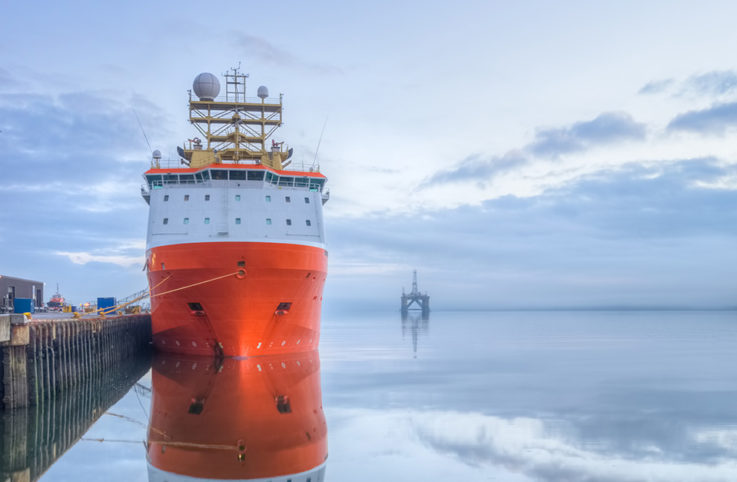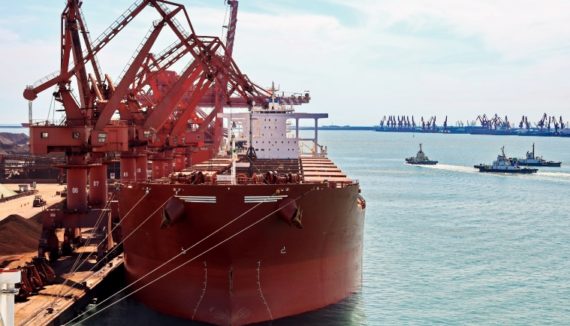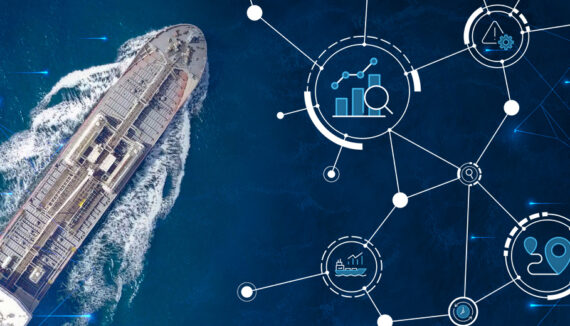In 2021, digitalization initiatives are expected to take center stage in the maritime shipping space as organizations on both sides of the contract seek out its transformative benefits. The next decade will bring a wave of platform-enabled digital applications, including big data, global connectivity, the digitalization of physical assets, a powerful hybrid of human efforts and automation, and more sustainable decisions.
Advancements like these can feel overwhelming to time-constrained maritime shipping businesses and marine logistics organizations, particularly if you’re early in your digital journey. But there are a few actionable steps you can take today to ensure you’re poised to remain ahead through the next decade and beyond, starting with the central platform you use to run your business operations.
1) Build a foundation for long-term digital success.
The potential of tomorrow’s digital breakthroughs can be tantalizing, but digitalization is a journey made up of progressive and intentional steps. A critical starting line for a successful digital journey is the implementation of a foundational commercial platform that is committed to innovation and capable of tightly integrating with the innovative applications you choose to incorporate in your solution landscape. Don’t underestimate the importance of this step. The foundation you choose to set today will catalyze your digital progress for years to come.
2) Consider your business goals first, then how technology can support them.
Digitalization is only as compelling as its ability to drive real value for your business. Instead of getting caught in the current of hype over the next shiny trend, consider taking a business-first approach. Begin by examining your organization’s short-term and long-term goals. Then, ask yourself how technology can empower you to achieve them. By starting with your business needs and following with technology that will empower you into the digital future, you’ll ensure that the solutions you choose to adopt are purposeful, pragmatic, evergreen, and optimized to drive measurable results.
3) Expand your perspective on digitalization from an isolated initiative to a pervasive reality.
Most businesses can name the next few digital enhancements they will be making. But far fewer maritime shipping organizations are capable of discussing how digitalization underpins their core commercial workflow and the strategic role it plays in the future of their business. Organizations that have established a strong digital foundation will be best positioned to tap into the transformative breakthroughs and initiatives of the next decade and incorporate them into their centralized digital ecosystem. By viewing digitalization as pervasive, you will ensure that as your business evolves, so too does your digital approach.
4) Engage cross-functional stakeholders to crowdsource your digital future, internally.
The people who know your business best are the ones who work within its operative parameters every single day. When you consider the digital future of your organization, turn to your workforce for advice and insight. Your internal crowd of cross-functional superusers will not only have suggestions for digitalization, automation, and connectivity, but their suggestions are most likely to align with the priorities and realities of your organization. Make sure they remain engaged throughout the digital lifecycle—from defining solution requirements to engaging in continual learning and providing feedback to gauge long-term success.
Meet the Demands of 2030 with a Platform That Evolves with You
Within the next decade, new digital applications and capabilities will transform the way the maritime industry operates. To keep pace with this rapid innovation, the maritime world’s diverse stakeholders require a dynamic platform for the commercial management of marine fleets and cargoes to provide the information and tools they need to make the right decisions at the right time. With an agile, cloud-based solution to support the global accessibility, advanced data sharing, and seamless integration requirements of the future, maritime organizations can meet the demands of the digital age head-on. The Veson IMOS Platform (VIP) is the dynamic solution chosen by maritime leaders across the industry to accelerate their digitalization journey over the next decade and beyond.




